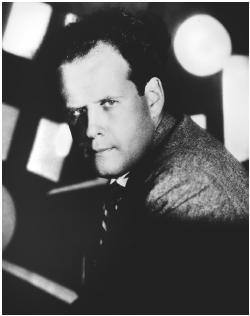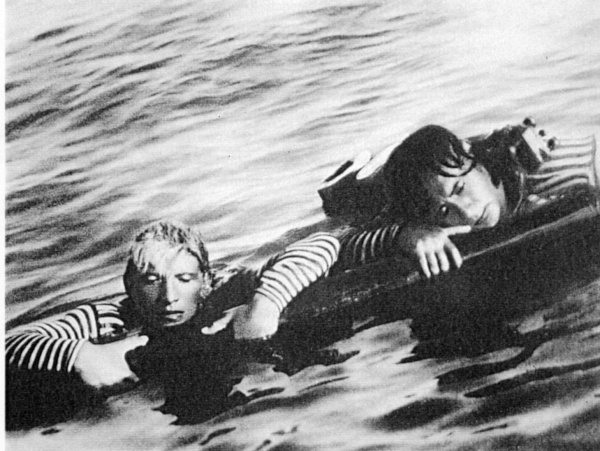

Yesterday (November 4th) as part of the 3rd Russian Film Festival in London there was a discussion with the title 'Which Russia is Real?' in which the directors Pavel Bardin(left) Vitali Mansky and the film critic Andrei Plakhov (right) were present as were a number of other British documentarists and media personalities including Teresa Cherfas who produced the Jonathan Dimbleby Russia series and the former BBC correspondent Bridget Kendall. Well, the discussion was a bit of a mish-mash. What were they looking at? Documentary film, the vision of Russia in the West, the view of Russia in Russia, the view of Britain for a Russian film critic, which are the best documentary films of Russia, should films give a positive image of Russia (the Positive Hero replaced by the Positive Image?) as well as some discussion of the film Russia 88 and of the vicissitudes of it and Mansky's film 'The Revolution that Wasn't' in Russia itself. Oh, and the question of censorship and freedom. In short themes that could have taken a whole evening to get through. The proliferation of themes meant that none were discussed and thrashed out till they produced some completely new thinking but I left the meeting feeling that enough hints were given in new directions that one could start thinking about this subject in some new way and yes it was great to see and hear some words from critics like Plakhov and directors like Mansky and Bardin. Some of the British speakers left me less impressed although there was an interesting account by the director of a documentary school of an exchange programme between VGIK documentary studios and his school, and how the students were able to find new images of the respective countries that they visited.
Andrei Plakhov in answering the question 'Which Russia is Real?' tried to question about 'Which Britain is Real?'. Being a film critic prior to coming to the UK he had an image of Britain and London as rather like a Ken Loach / Mike Leigh film - he mentioned the film Naked and recounted how this image changed after visits here. Then mention was made of the fact that films which had success abroad in Russia inevitably come under the charge of films being made for export. Of course, there then comes the call for the Positive Image of Russia which one member of the audience made (although in a slightly different context). Naturally, the Positive Image being manufactured on Russia's state channels or on Russia Today was heavily criticised especially by the two documentary filmmakers (both critical intellectuals who have been on Ekho Moskvy a number of times). Pavel Bardin made the comment that people in Russia were in danger of having their view of reality over-determined by State Television so they will one day start actually believing the television image rather than their own eyes. Mansky then told the audience of his watching Turkmeni television and described how this kind of
lakirovka is only possible in a country with concentration camps. To the question of having a more positive image of Russia they replied that making an excellently made film even if it is about prostitution is a way of creating a positive image by showing foreign audiences that Russia can make great films (and Plakhov cited the case of how Aki Kaurismaki was criticised at first for making a bad image of Finland but then became a kind of national hero for making Finland so well known). Well, I suppose the context is all important and that what these directors were saying would be said by all critical filmmakers.
An interesting point was made about the different traditions of socially critical filmmaking in Russia and Britain. Maybe the question was erroneously made to Bridget Kendall but it was, I feel, one of the questions that pointed to a way out of a vicious circle and over labouring the point of justifying the right of challenging false images. Here was a new idea that Russia and Britain may have different cultural traditions of social criticism in filmmaking and a lot could have been said about this, although there was, alas, no one to talk about this for none had their lives so steeply emmerged in both cultures (maybe one should have tried to cajole an argument out from the excellent translator of the meeting).
A question from the floor as to why Pavel Bardin chose the genre of mockumentary for his film 'Russia 88' could also have led to some new explorations of the genre. Bardin explained that it was a genre that he had long contemplated using (even before deciding about the subject of his film) and explained that he thought there were merits in reaching a wider public (were it not for the fact that his film hadn't been given a certficate but is doing fine on the internet and is selling many pirated copies). In retrospect it is hard to call Russia 88 a mockumentary- it is a kind of fusion. Maybe the most authentic mockumentary made in recent years in Russia was 'First on the Moon' - a very interesting film that would have led to some fascinating viewpoints on history and myth.
Pavel Bardin mentioned the many problems his film has had with bureaucracy and doesn't think it will ever be shown on Russian TV but the film has been shown at meetings which involved widely differing audiences (from decision-makers 100 meters from the Kremlin to antifa and National Bolshevik activists in Barnaul) and their reaction to the film according to Bardin has been completely 'adequate'. My memory of this spring/summer when his film came out in pirated editions in the streets of Moscow is that the film was definitely being pushed by the sellers (although not sure if their reaction to the film can be seen as completely 'adequate').
Vitali Mansky in describing the censorship situation used the example of how his film had not been shown even at the Documentary Film festival. A portrait of Russia's opposition his film was not so much the victim of censorship but of self-censorship in which festival directors and TV programmers are not even willing to try and get the agreement from some bureaucrat but are trying to grasp what their reaction might be. The bureaucrats or potential censors are actually more liberal than these frightened little lesser bureaucrats.
Someone from the floor asked whether freedom in this country was any greater than that in Russia to which Teresa Cherfas suggested that this was a deeply pernicious way of seeing things. Well, this question always arises in some form or another and this slightly moralistic reply also arises (allusions to murdered journalists). The problem is that this discussion - whose freedom is greater? - is, it seems, very much a red herring theme. The more interesting problem is to discover what is the real, everyday situation of censorship and the unsaid. What are the taboos? (Mansky suggested that Putin's daughter is one such taboo in Russia detailing how he spent a very long time just trying to get a shot of them from behind in a documentary he made on Putin). There are obviously both parallels and differences and, perhaps, it would be more productive to tease out what these are in a more calm, unhysterical and less polemical way. Yet this obviously is not a way that people are encouraged to discuss this question.
Alas, although Jeremy Hicks was present there was no significant discussion of the history of Rusian and Soviet documentary film. A missed opportunity. All in all though, it was a discusion that led to some unanswered but highly interesting pointers to possible new angles on documentary films and the image of a country. The meeting was very well attended for an event of this kind with most seats being occupied and the discussion didn't lag. A good chance to get to reflect on this question from many new angles.

















